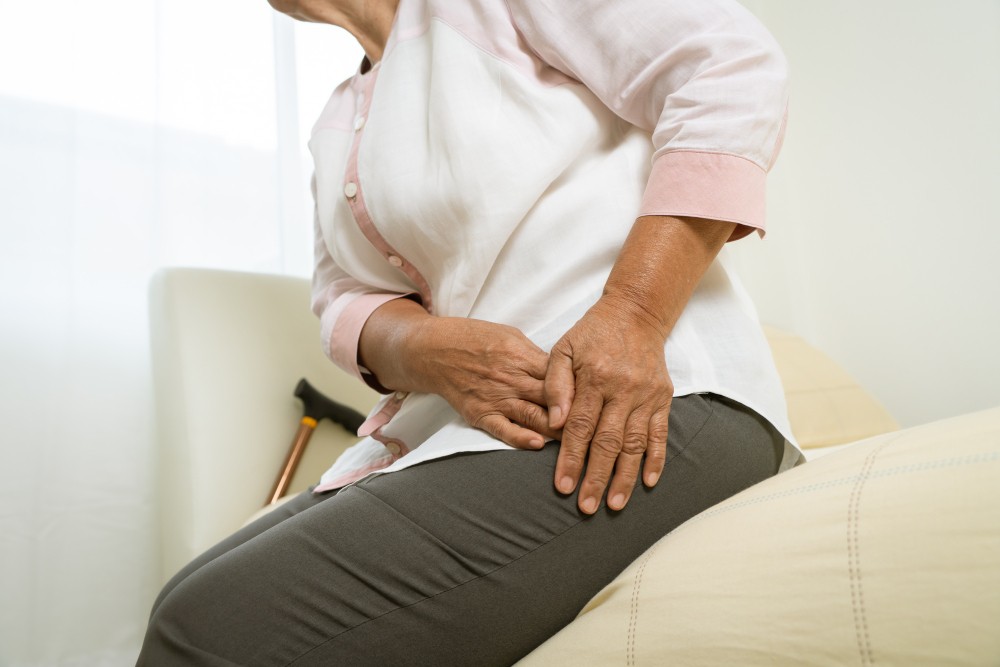
Hip Pain Treatment
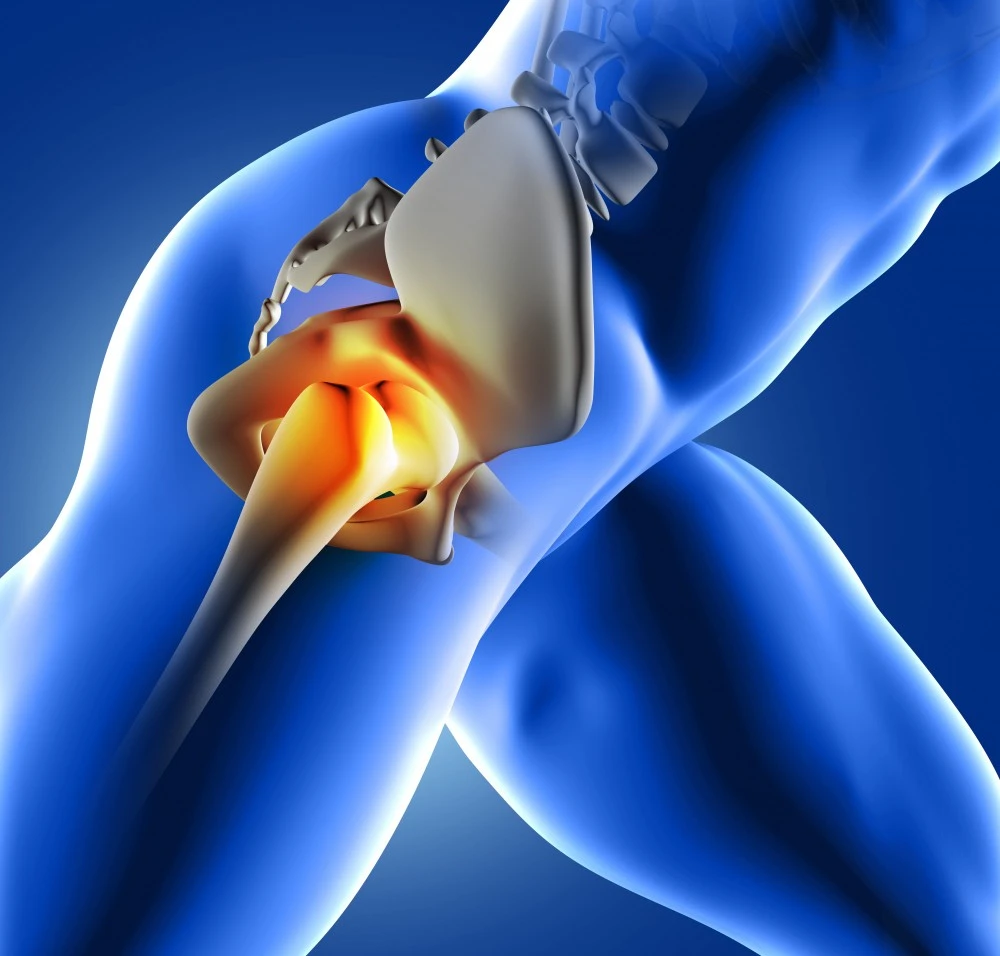
Hip Joint's Anatomy:
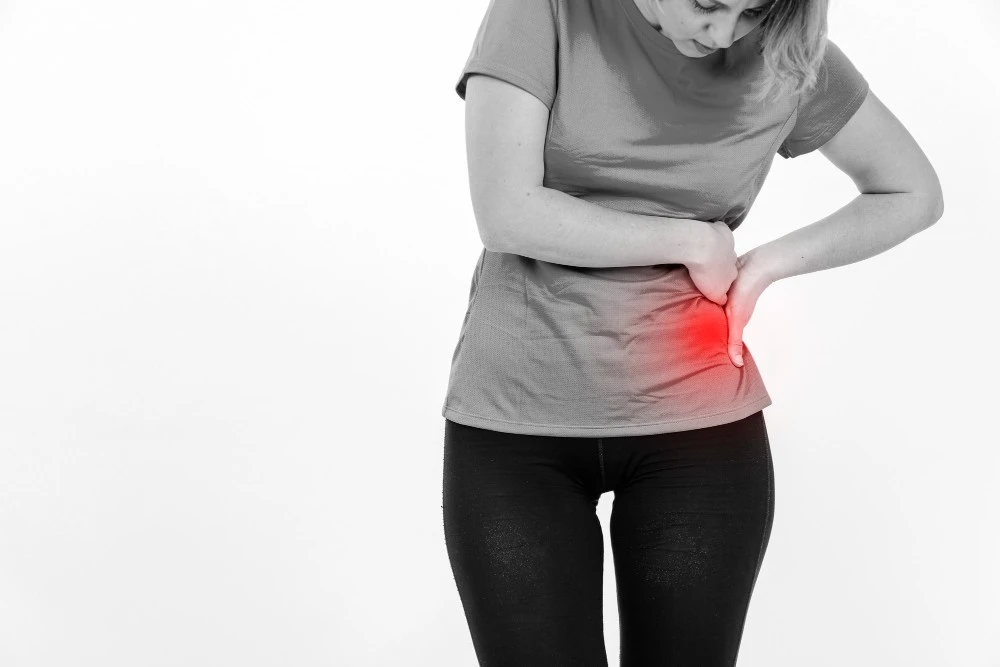
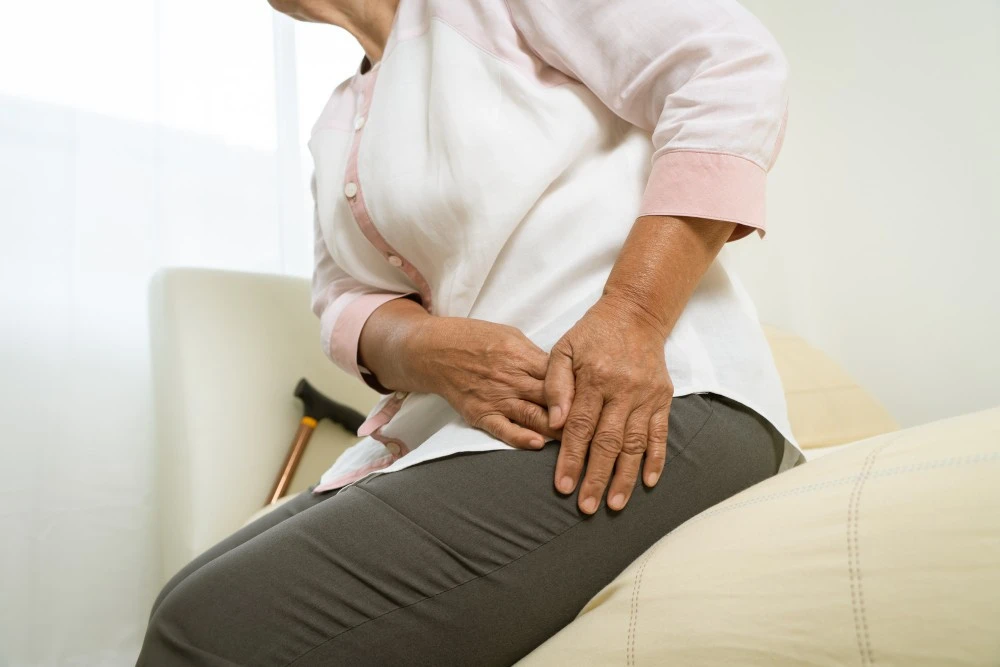
Causes of Hip Pain:
Hip pain can arise from a multitude of factors, which can be broadly categorized into:
- Injuries and Trauma: Falls, accidents, sports injuries, and direct impact on the hip can cause tissue damage, fractures, dislocations, and other traumatic injuries leading to pain.
- Medical Conditions: There are several medical conditions that can contribute to hip including:
- Arthritis: Inflammation and degradation of the hip joint can generate pain often mistaken for a hip injury in patients with osteoarthritis, rheumatoid arthritis, or another inflammatory disease.
- Infections: The hip joint or surrounding tissues can be affected by bacterial or viral infections, resulting in pain, swelling, and discomfort.
- Nerve Issues: Conditions like sciatica or hip nerve entrapment involve nerve compression, leading to radiating pain in the hip and down the leg.
- Bone Conditions: Conditions like avascular necrosis (loss of blood supply to the bone), bone tumors, or developmental disorders can cause hip pain.
- Structural Issues: Abnormalities in the hip joint’s structure can contribute to pain. For instance:
- Hip Dysplasia: An improperly formed hip joint that can lead to early arthritis and pain.
- Femoroacetabular Impingement (FAI): Abnormal contact between the femur and acetabulum can cause pain during hip movement.
- Labral Tears: Tears in the cartilage lining the acetabulum can lead to pain, clicking, or catching sensations.
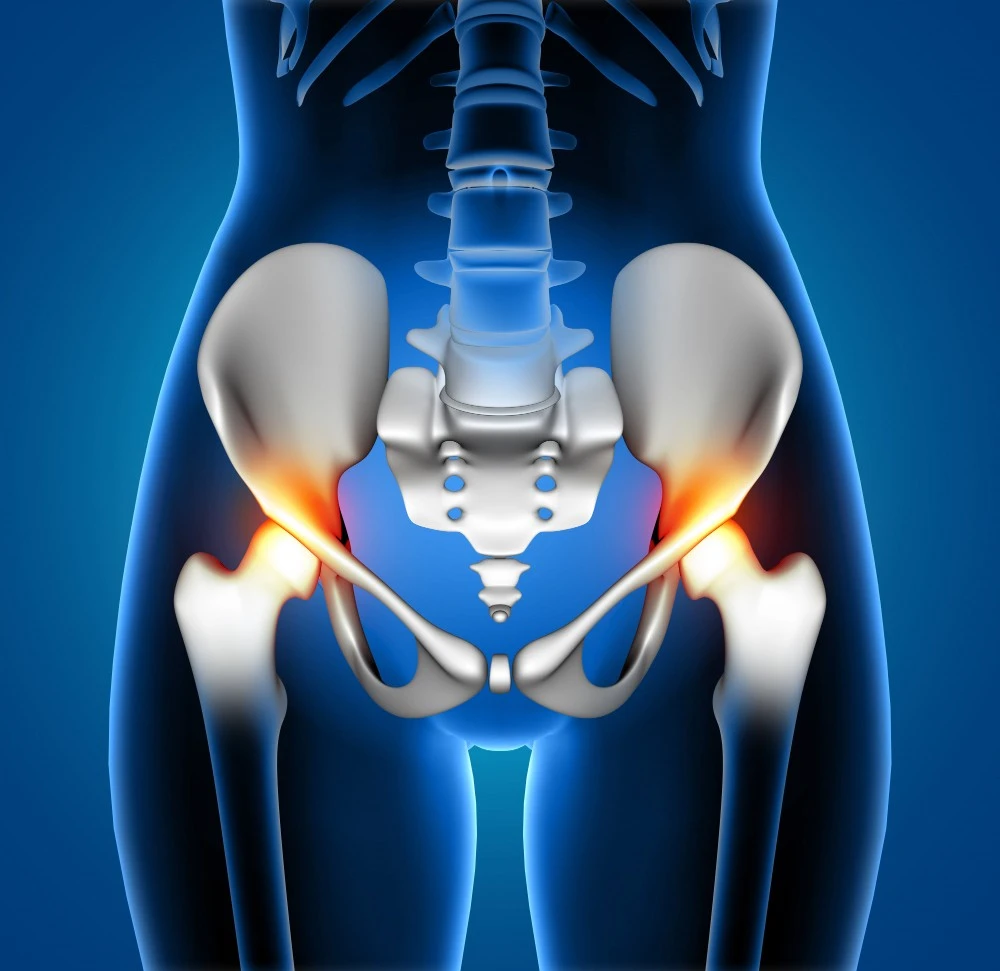
Hip Pain Characteristics:
Hip pain can vary in intensity, duration, and location. It might be described as:
- Dull or Aching: Many people with hip experience a faint, aching sensation that can be persistent.
- Sharp or Stabbing: Certain conditions, like hip fractures or nerve compression, can cause acute stabbing pain.
- Localized or Radiating: Depending on the underlying cause, hip pain might be confined to the hip area or radiated down the thigh or knee.
- Aggravated by Movement: Hip often worsens with movement, especially in activities that involve weight-bearing or rotating the hip joint.
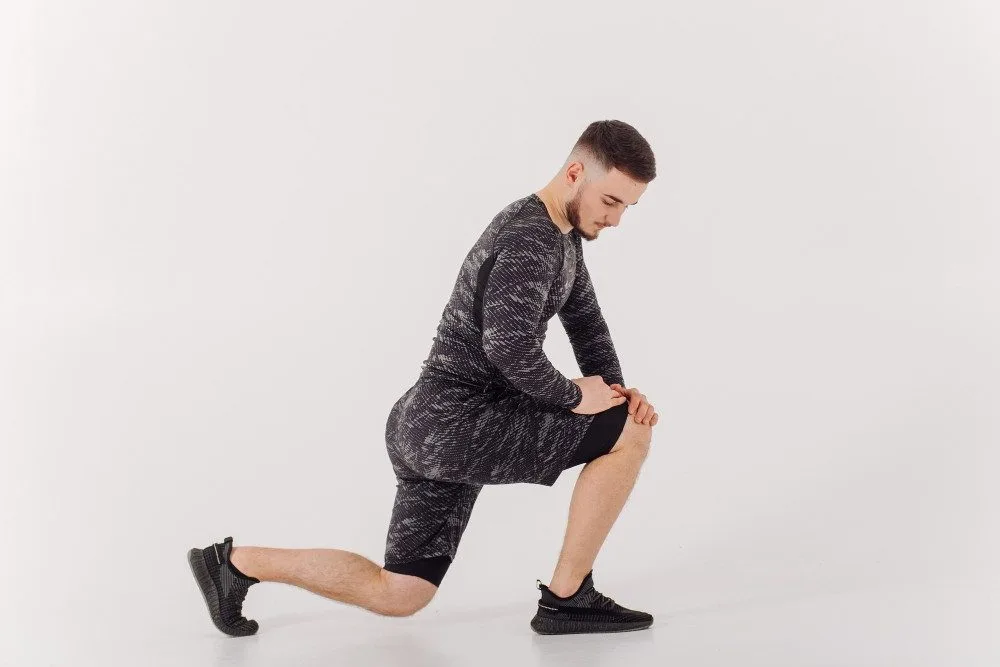
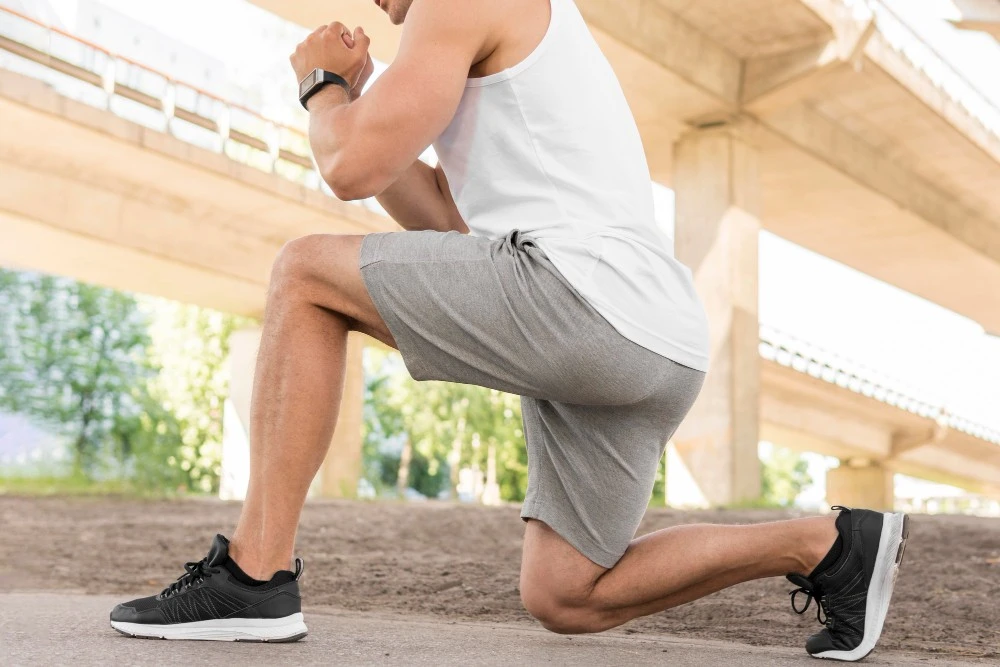
Best Hip Joint Injection Provider in Central Florida:
When there is severe pain in the hip joint or the pain does not improve with home remedies, consulting with an experienced medical practitioner becomes critical. If you’re seeking relief from hip pain treatment Orlando, Dr. J, M.D. is an American board-certified physician specializing in orthopedic health and joint-related issues. Regarding joint issues, he can provide beneficial recommendations and insights. Medical treatment may be the best option in certain situations, particularly those involving significant structural damage or difficulties. Dr. J, M.D. offers specialized hip pain therapy in Orlando with various treatment options tailored to your needs.
Understanding the contributing factors to hip joint discomfort, such as hip muscle pain in Orlando, and hip joint pain in Orlando, is necessary for successful treatment. It requires the participation of medical professionals like Dr. J, M.D. and various treatment approaches, as well as the determined efforts of the individual experiencing the pain. Dr. J, M.D. the best hip pain therapist in Orlando in Orlando Florida, takes a comprehensive approach to treating hip joint pain, including addressing hip muscle pain and joint discomfort, combining several treatments to improve the odds of recovering mobility, relieving pain, and improving overall quality of life.
FAQS
Pain can have several root causes, such as trauma, overuse, arthritis, bursitis, tendonitis, strained muscles, pinched nerves, and aberrant anatomy.
Severe discomfort, inability to bear weight on the affected limb, rapid onset of pain, pain accompanied by fever, and pain that does not improve with rest are all signs of a severe underlying problem that a medical specialist should evaluate.
- Hiking and trekking are high-intensity sports that can help you burn many calories, but if you suffer from hip pain, you should avoid them.
- Try to stay away from exercises that force you to flex your hips.
- Do not perform deep squats or lunges.
- Refrain from doing any standing exercises.
- Stay away from any exercises that require you to bear your weight.
Suppose you have significant hip pain lasting more than a few days. In that case, if your hip appears misshapen, or you have a fever, or if you have trouble moving your hip, you should make an appointment with a medical professional like Dr. J, M.D. in Orlando to get an accurate diagnosis and appropriate treatment.
Treatment options vary depending on the underlying reason. They may involve physical therapy, medicine (pain relievers, anti-inflammatories), (Power PRP, PRF, Exosomes, and Stem Cells), joint injections, assistive equipment (crutches, canes), and, in certain circumstances, surgical intervention.
